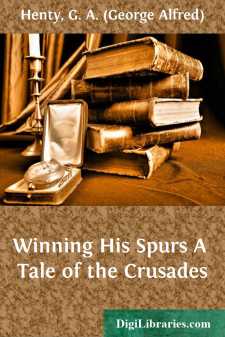Categories
- Antiques & Collectibles 13
- Architecture 36
- Art 48
- Bibles 22
- Biography & Autobiography 813
- Body, Mind & Spirit 142
- Business & Economics 28
- Children's Books 16
- Children's Fiction 13
- Computers 4
- Cooking 94
- Crafts & Hobbies 4
- Drama 346
- Education 46
- Family & Relationships 57
- Fiction 11829
- Games 19
- Gardening 17
- Health & Fitness 34
- History 1377
- House & Home 1
- Humor 147
- Juvenile Fiction 1873
- Juvenile Nonfiction 202
- Language Arts & Disciplines 88
- Law 16
- Literary Collections 686
- Literary Criticism 179
- Mathematics 13
- Medical 41
- Music 40
- Nature 179
- Non-Classifiable 1768
- Performing Arts 7
- Periodicals 1453
- Philosophy 64
- Photography 2
- Poetry 896
- Political Science 203
- Psychology 42
- Reference 154
- Religion 513
- Science 126
- Self-Help 84
- Social Science 81
- Sports & Recreation 34
- Study Aids 3
- Technology & Engineering 59
- Transportation 23
- Travel 463
- True Crime 29
Colonel Thorndyke's Secret
Categories:
Description:
Excerpt
CHAPTER I.
Squire Thorndyke, of the Manor House of Crawley, was, on the 1st of September; 1782, walking up and down the little terrace in front of the quaint old house in an unusually disturbed mood. He was a man of forty three or four, stoutly and strongly built, and inclined to be portly. Save the loss of his wife four years before, there had been but little to ruffle the easy tenor of his life. A younger son, he had, at his mother's death, when he was three and twenty, come in for the small estate at Crawley, which had been her jointure.
For ten years he had led a life resembling that of most of his neighbors; he had hunted and shot, been a regular attendant at any main of cocks that was fought within fifteen miles of Crawley, had occasionally been up to London for a week or two to see the gay doings there. Of an evening he had generally gone down to the inn, where he talked over, with two or three of his own condition and a few of the better class of farmers, the news of the day, the war with the French, the troubles in Scotland, the alarming march of the Young Pretender, and his defeat at Culloden—with no very keen interest in the result, for the Southern gentry and yeomen, unlike those in the North, had no strong leanings either way. They had a dull dislike for Hanoverian George, but no great love for the exiled Stuarts, whose patron, the King of France, was an enemy of England.
More often, however, their thoughts turned upon local topics—the holding up of the coach of Sir James Harris or Squire Hamilton by highwaymen; the affray between the French smugglers and the Revenue men near Selsea Bill or Shoreham; the delinquencies of the poaching gangs; the heaviness of the taxes, and the price of corn.
At the age of thirty-three Squire Thorndyke married the daughter of a neighboring landowner; a son was born and three years later Mrs. Thorndyke died. Since then the Squire had led a more retired life; he still went down to smoke his pipe at the inn parlor, but he gave up his visits to town; and cock fights, and even bull baiting, were no longer attractions to him. He was known as a good landlord to the three or four farmers who held land under him; was respected and liked in the village, where he was always ready to assist in cases of real distress; was of an easygoing disposition and on good terms with all his neighbors.
But today he was unusually disturbed in his mind. A messenger had ridden up two hours before with a letter from London. It was as follows:
"MY DEAR BROTHER JOHN:"You will be surprised indeed at this letter from me, who, doubtless, you suppose to be fighting in India. I have done with fighting, and am nearly done with life. I was shot in the battle of Buxar, eighteen months ago. For a time the surgeons thought that it was going to be fatal; then I rallied, and for some months it seemed that, in spite of the ball that they were never able to find, I was going to get over it, and should be fit for service again. Then I got worse; first it was a cough, then the blood used to come up, and they said that the only chance for me was to come home....












